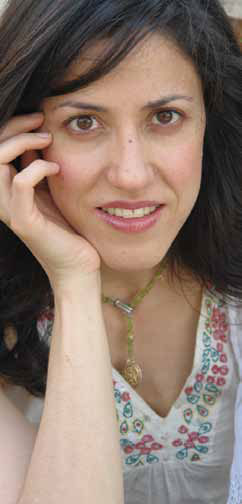Campus News
Alumna’s ‘New York Times’ article details womens’ recruitment, escape from ISIS
UC Santa Cruz alumna Azadeh Moaveni (Oakes, politics, ’98) wrote the dramatic and detailed Sunday ‘New York Times’ article that describes how three young Syrian women become enlisted – two by arranged marriage – into ISIS and later escaped to Turkey.

UC Santa Cruz alumna Azadeh Moaveni (Oakes, politics, ’98) wrote the dramatic and detailed Sunday New York Times article that describes how three young Syrian women become enlisted – two by arranged marriage – into ISIS and later escaped to Turkey.
Moaveni, who spoke at the Oakes College commencement last June, is a former Middle East correspondent for Time magazine and reported from throughout the region for much of the past decade for the newsweekly as well as the New York Times Book Review, the Washington Post, and the Los Angeles Times.
Moaveni’s article, “ISIS Women and Enforcers in Syria Recount Collaboration, Anguish and Escape,” reveals how the women became members of the Khansaa Brigade, the Islamic State’s female morality police, and later fled. The husbands of the two women who married died as suicide bombers. The piece also exposes the rise of the Islamic State in Raqqa, Syria, its Iraqi origins and leaders, and the influence of foreigners who streamed into the city.
Moaveni was raised in San Jose with Iranian exile parents. After UCSC, she won a Fulbright Fellowship to Egypt and studied Arabic at the American University in Cairo. She later lived in Iran and married an Iranian with whom she has a son. She’s written two books, Lipstick Jihad and Honeymoon in Tehran, and co-wrote Iran Awakening with Nobel peace prize winner Shirin Ebadi.
She now lives in Cambridge and teaches journalism at Kingston University in London and has also contributed to the Guardian and Foreign Policy.
Four years ago writing in the UCSC Review, Moaveni described her growth as a writer from her writing and literature classes and how she learned about long-form journalism. She said it was under writing instructor and City on the Hill Press advisor Conn Hallinan “that I learned to love the genre that would become my life’s work: literary journalism.”